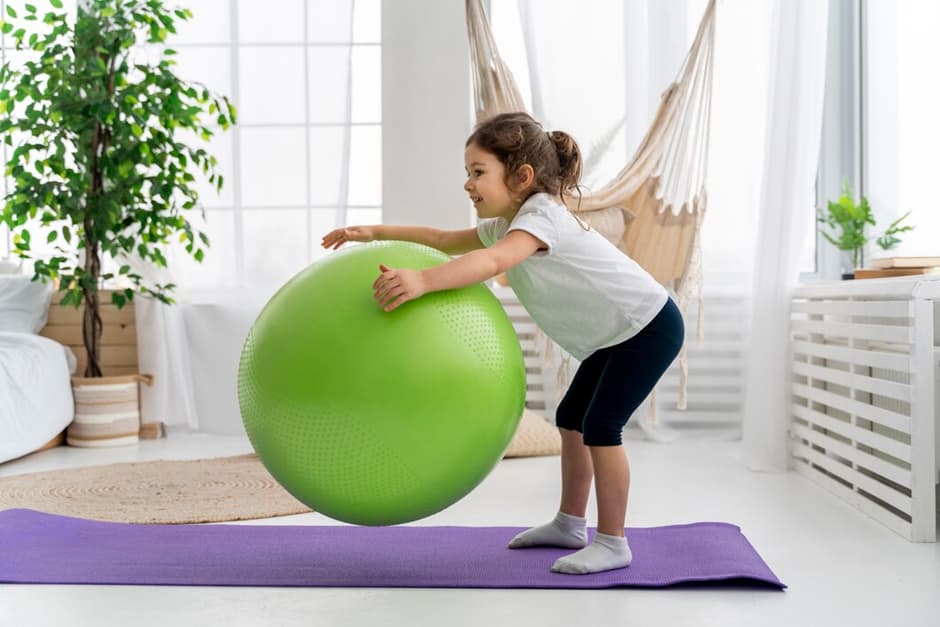In today’s world, parents and educators increasingly value the diverse benefits that physical exercise provides to young children. Beyond enhancing physical health, exercise plays a significant role in cognitive development. Research shows that early physical activity helps shape not only a child’s fitness but also their ability to learn, remember, and solve problems—skills essential for lifelong growth and success.
How Physical Activity Impacts the Developing Brain
Physical exercise contributes directly to brain development in early childhood, affecting areas related to memory, attention, and cognitive flexibility. When children engage in physical play, such as running, jumping, or balancing, they activate critical parts of the brain, creating a solid foundation for learning.
Increased Blood Flow and Neural Growth
One of the most immediate effects of physical exercise is an increase in blood flow to the brain, delivering more oxygen and nutrients to brain cells. This enhanced blood flow promotes the production of brain-derived neurotrophic factor (BDNF), a protein closely linked to memory, attention span, and learning. BDNF supports synaptogenesis, the formation of connections between neurons, which is essential for absorbing and retaining new information. In early childhood, a period of rapid brain development, these neural connections are crucial for building cognitive skills.
Strengthening Executive Functions Through Physical Play
Physical activities also foster the development of executive functions—cognitive processes that include working memory, flexibility, and impulse control. These functions are essential for tasks like problem-solving, emotion regulation, and adapting to new situations. Activities such as organised sports or rule-based games challenge children to remember steps, plan movements, and control impulses, which strengthens their focus and decision-making abilities. By engaging the prefrontal cortex, the brain’s centre for executive function, physical play helps build the mental discipline and self-regulation skills essential for academic and social success.
Types of Physical Exercise Beneficial for Cognitive Development
While most physical movement is beneficial, certain types of activities have a particularly positive impact on cognitive development. Exercises that improve coordination, balance, and aerobic capacity are especially effective in enhancing cognitive abilities in young children.
Aerobic Activities
Aerobic activities, such as running, dancing, and swimming, boost cardiovascular health, increasing blood and oxygen flow to the brain. Even short bursts of aerobic activity, such as 10-15 minutes, can improve cognitive engagement and memory retention. Engaging in these exercises promotes mental clarity and mood regulation, creating a stable foundation for learning and focus.
Coordination and Balance Exercises
Activities that require balance and coordination, like cycling, climbing, or yoga, stimulate the cerebellum, a brain area involved in motor control and spatial awareness. Exercises like these improve children’s proprioceptive skills—their awareness of body position in space—enhancing their ability to perform tasks such as writing or navigating their environment. Coordination-based activities also involve dual-tasking, which strengthens working memory and cognitive flexibility. For instance, balancing while counting or jumping to a rhythm encourages children to focus on both physical and mental tasks simultaneously, promoting multi-tasking abilities.
The Long-Term Cognitive Benefits of Early Physical Activity

The benefits of physical exercise in early childhood extend well beyond the preschool years. Research suggests that children who are physically active from an early age experience long-term cognitive advantages, maintaining these skills as they grow older.
Enhanced Academic Performance
Studies indicate that physically active children tend to perform better academically. Improved executive function, memory, and attention span contribute to better classroom focus and task completion. These children are often more engaged and retain information more effectively, resulting in better academic outcomes. Additionally, physical exercise supports a proactive learning attitude, encouraging children to tackle challenges and persist through difficult tasks, a mindset that is beneficial throughout life.
Emotional and Social Intelligence
In addition to cognitive benefits, physical exercise also enhances emotional and social intelligence. Participating in group sports and interactive games allows children to develop essential social skills, such as cooperation, empathy, and patience. Physical activity provides opportunities for children to navigate social dynamics, learn teamwork, and build self-confidence—skills crucial for building healthy relationships.
Furthermore, physical exercise promotes emotional regulation by balancing brain chemicals such as endorphins, which are linked to mood stability. By learning to manage stress and anxiety through regular physical activity, children develop resilience, which contributes to a positive outlook and helps them navigate various social and emotional challenges.
Incorporating Physical Exercise in Early Childhood Education
Given the substantial benefits of physical exercise on cognitive development, it is crucial for parents, caregivers, and educators to integrate movement into early childhood routines. Simple activities like dance breaks, nature walks, and short obstacle courses provide enjoyable and stimulating experiences that benefit cognitive growth.
Schools and nurseries can create environments that encourage physical engagement through structured movement sessions, free play, and organised sports. Importantly, exercise in early childhood doesn’t need to be intensive; the focus should be on creating enjoyable, age-appropriate activities that allow children to explore and experiment. These experiences lay the foundation for a love of movement, supporting both cognitive and physical growth.
Recognising that exercise is not separate from learning but rather a crucial part of it can reshape early education to include more physical play. As children move, they explore their potential, build cognitive resilience, and prepare for academic and personal challenges.
In conclusion, physical exercise is foundational for cognitive development in early childhood. From building executive functions to enhancing social skills, the cognitive benefits are profound and lasting. By fostering physical activity early on, we set children on a path toward healthier, more resilient, and cognitively capable lives.




